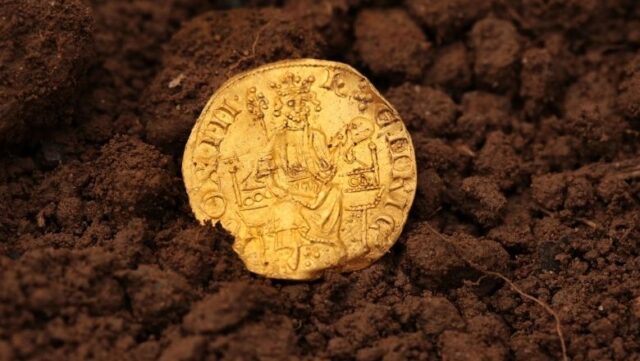
Discovering the joy of coin collecting can be as exhilarating as unearthing hidden treasures from bygone eras. For many, the pursuit of rare coins is not just a hobby but a gateway into the rich tapestries of history and culture.
If you’re embarking on this fascinating journey as a beginner, understanding where to start can transform your initial curiosity into a rewarding passion. Here’s a deep dive into how you can begin your adventure in coin collecting, filled with tips to cultivate your new interest.
The Allure of Coin Collecting
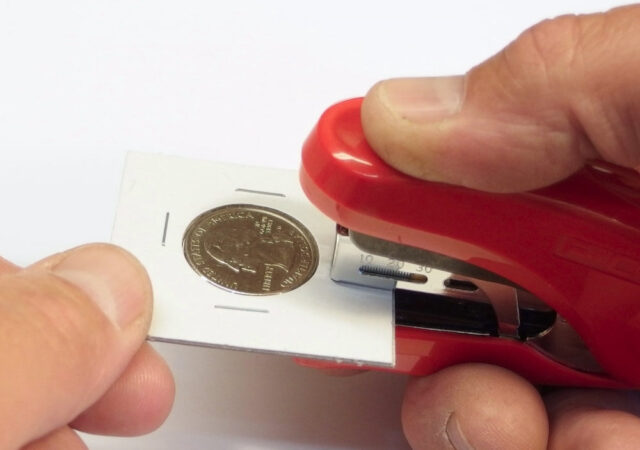
The allure of ruthenium coin collecting lies in its ability to connect collectors with different periods and geographies through tangible pieces of history. Each coin is a miniature artifact, a relic that has passed through countless hands, witnessing the lives and events of its time. The thrill of holding a coin from the Roman Empire or finding a rare mint error piece is incomparable.
Setting Your Collecting Goals
As you step into coin collecting, one of the first steps is to determine what you aim to achieve. Do you wish to collect coins from a specific era or country? Are you more interested in rare coins, or do those with historical significance pique your interest? Establishing clear goals early on will guide your collecting journey and help maintain your focus.
Understanding Coin Grading
One of the fundamentals of coin collecting is learning about coin grading. Grading is a system used to describe a coin’s condition. The grade of a coin greatly affects its value—the higher the grade, the more valuable the coin generally is. Familiarize yourself with the grades, ranging from Good (G), Very Good (VG), Fine (F), Very Fine (VF), Extremely Fine (EF), to Uncirculated (UNC). Each grade represents a range of features about the coin’s wear and appearance.
Where to Find Coins
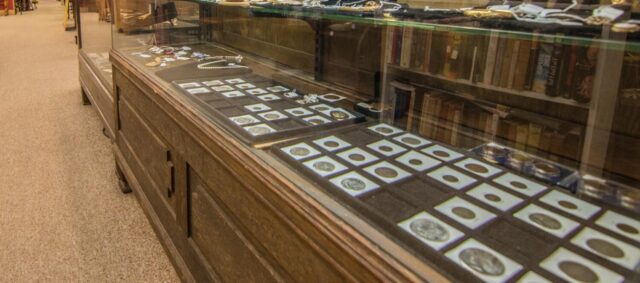
Starting a coin collection means knowing where to look. Begin with the obvious places: your pocket change or old coin jars at home. Sometimes, rare finds are mixed in with everyday currency. Additionally, attending coin shows, visiting local coin shops, or connecting with other collectors can provide opportunities to find coins that interest you. Online platforms and auctions are also viable channels for acquiring coins, though they often require a more watchful eye to avoid counterfeits.
The Importance of Research
One cannot emphasize enough the importance of thorough research in coin collecting. Learning about the coins you collect is crucial—not just for historical appreciation but also to recognize their market value and authenticity. Invest time in reading books, joining forums, and following reputable coin collecting websites. Knowledge is your best tool in making informed decisions and successful purchases.
Handling and Storage
Proper handling and storage of coins are vital to preserving their condition and, by extension, their value. Always hold coins by the edges to avoid touching the faces, as oils and dirt from your fingers can cause damage. For storage, opt for quality coin holders, albums, or cases that offer protection from moisture and environmental pollutants.
Developing a Keen Eye
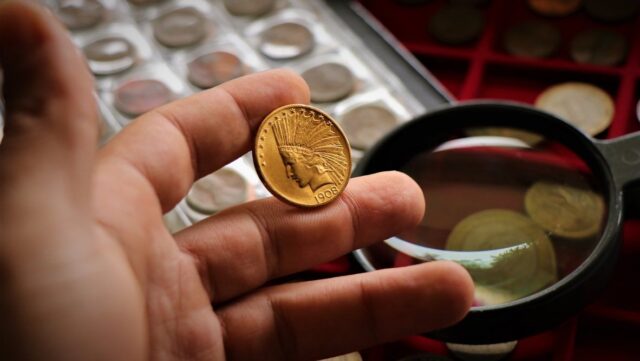
Developing a keen eye for detail is essential in coin collecting. Over time, you’ll learn to spot nuances that distinguish a common coin from a rare find. This skill is particularly valuable at auctions or when examining potential additions to your collection. Pay close attention to mint marks, errors, and the overall condition of the coins.
Joining a Community
Coin collecting is not just about the coins—it’s also about the people you meet along the way. Joining a community of fellow collectors can enhance your experience. Clubs and online communities offer support, trade opportunities, and shared knowledge that can prove invaluable as you build your collection.
Navigating the Market
Understanding the coin market is crucial as you delve deeper into collecting. The market can fluctuate based on factors like rarity, demand, and economic conditions. Keeping an eye on these trends will help you buy wisely and possibly sell when the market peaks.
Enjoying the Journey
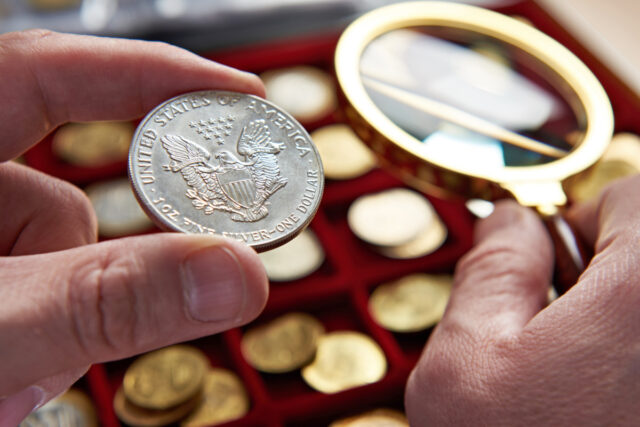
Lastly, remember that coin collecting is a journey meant to be enjoyed. While it’s easy to get caught up in the pursuit of rare coins or the perfect grade, take time to appreciate the stories behind each piece. Your collection is a personal reflection of your interests and tastes, and its true value lies in the enjoyment and satisfaction it brings.
Deepening Your Knowledge and Skills
As your journey in coin collecting progresses, it’s important to deepen your knowledge and enhance your skills. This is not merely about adding more coins to your collection but about enriching your understanding of numismatics—the study of coins and currency. By deepening your knowledge, you’ll be able to appreciate the finer details and historical significance behind each piece.
Advanced Grading Techniques
While basic grading gives you a good foundation, mastering advanced grading techniques can set you apart as a collector. This involves understanding the subtleties that can make a significant difference in a coin’s grade. For example, learning to recognize the differences between an EF (Extremely Fine) and AU (About Uncirculated) coin involves appreciating minute details in the coin’s luster, strike, and wear.
Historical Research
For many collectors, part of the thrill of coin collecting is the stories associated with the coins. Each coin series or individual piece can have rich historical narratives. Dive into the history of the periods from which your coins originate. Understanding the political, social, and economic contexts in which a coin was minted can add a layer of appreciation and make your collection more meaningful.
Specializing Your Collection
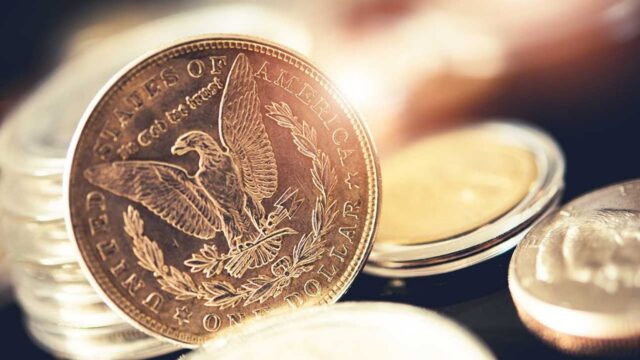
While some collectors enjoy the diversity of general collecting, specializing can be a fascinating path. You might choose to collect coins from a specific country, era, or even focus on a particular type of coin, such as silver dollars or ancient Roman coins. Specializing allows you to become an expert in a specific area, making it easier to recognize rare opportunities and build a collection with significant thematic or historical value.
Authentication and Counterfeit Detection
As your collection grows, so does the need for vigilance against counterfeits. Learning about authentication and counterfeit detection is crucial. This may involve using tools like magnifying glasses or digital microscopes to inspect coins for authenticity signs. Attending seminars or workshops can also provide you with the skills needed to spot fakes, protecting your investment and ensuring the integrity of your collection.









